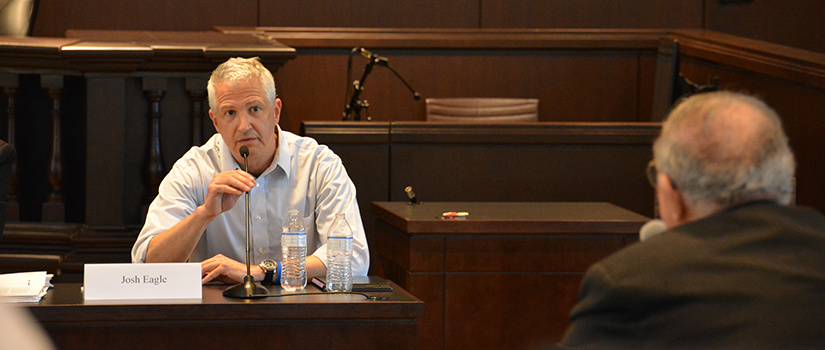On November 2-4, the ABA Real Property, Trust, and Estate Law Journal welcomed more than 100 attendees to a symposium that commemorated the 25th anniversary of one of the state's landmark cases, Lucas v. South Carolina Coastal Council. The three-day event included a day-and-a-half of panel discussions, while the third, optional day gave guests a chance to walk through and see first-hand the property in Charleston, South Carolina, that lies at the center of this case.
In addition to its unique format, the symposium also featured a diverse lineup of speakers from across the country and across the legal industry, including law professors, private practice attorneys, and government officials. During a formal dinner, the Honorable Jean Toal, former Chief Justice of the South Carolina Supreme Court, delivered keynote remarks.
"We planned our speaker panels very intentionally; we wanted a diversity of thought on takings and coastal management, a topic that is both timely and important to coastal communities," Professor Amy Milligan said. "The fact that our speakers joined us for this discussion from all over the U.S. further reinforces that the importance of this topic reaches beyond just South Carolina’s coastal communities."
The panelists covered an array of issues surrounding the monumental case, showing its relevancy then, today and in the future. Throughout the discussions, one major takeaway practitioners and experts agreed on was that there is still a need for more legal thought on what bars public use of properties that extend into the public trust. School of Law Solomon Blatt Professor of Law Josh Eagle, who specializes in environmental law, natural resources law, and ocean and coastal law, was a contributing panelist and moderator.
"The symposium highlighted the fact that, despite its lack of precedential applicability, the Lucas decision continues to play an important role in helping us understand regulatory takings law. In addition, the speakers, who represented viewpoints from across the ideological spectrum, made it clear that coastal areas will be a hotbed of challenging legal and political problems for years to come."
Third-year law student and symposium editor Lindsay Richardson stressed that Lucas is still the leading authority in most coastal law cases.
"Laws may change, interpretations may evolve, and opinions may alter. However, the thing that remains certain is the ability for the law to impact for years to come as evidenced by Lucas," Richardson said. "While we gathered to revisit and reconsider Lucas after 25 years, we look forward to the ways we as lawyers, students, and concerned citizens can ensure a policy that makes our coastal areas and world a better place."
